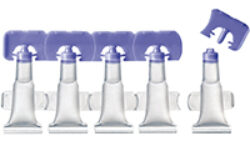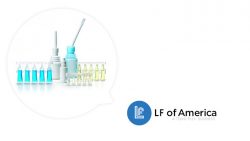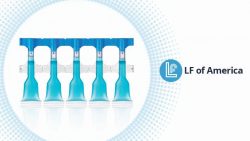
Finding an FDA registered packaging facility near your location determines whether your pharmaceutical or cosmetic product launches on schedule or faces costly delays. Southeast manufacturers increasingly turn to Florida-based contract packagers that combine federal compliance certifications with geographic advantages unavailable in traditional manufacturing hubs. This comprehensive guide reveals how to evaluate FDA registered packaging facilities, what certifications genuinely matter for your product category, and why Florida’s emerging pharmaceutical corridor offers unique supply chain benefits for cosmetic and OTC pharmaceutical brands seeking reliable, compliant contract packaging partners.
Understanding FDA Registration Requirements for Packaging Facilities 🏭
When you search for an FDA registered packaging facility near your business location, understanding what FDA registration actually means creates the foundation for informed decision-making. FDA registration doesn’t indicate FDA approval or endorsement—instead, it demonstrates that a facility has registered with the FDA and agreed to comply with applicable regulations for their specific product categories.
FDA registration requirements vary significantly by product type. Drug manufacturers and packagers must register under 21 CFR Part 207, while cosmetic manufacturers and packagers must comply with the FDA Modernization of Cosmetics Regulation Act (MoCRA). OTC pharmaceutical products face the most stringent requirements, including Current Good Manufacturing Practice (cGMP) compliance and comprehensive quality management systems.
For contract packaging facilities working with FDA registered packaging facilities, verification goes beyond checking registration status. Smart buyers investigate the facility’s specific registrations, whether they maintain separate registrations for different product lines, and if their registration covers your particular product category. A facility registered for cosmetics may not hold appropriate registrations for OTC pharmaceutical packaging.
Critical Certifications Beyond FDA Registration
While FDA registration provides baseline credibility, additional certifications separate pharmaceutical-grade facilities from standard contract packagers. ISO 22716:2007 (Cosmetic GMP) certification demonstrates commitment to quality management specifically designed for cosmetic manufacturing and packaging. This international standard addresses contamination risks, quality control procedures, and documentation requirements that protect product integrity.
ISO 8 clean room certification represents the pharmaceutical industry’s gold standard for controlled manufacturing environments. Facilities maintaining ISO 8 clean rooms (formerly known as Class 100,000 clean rooms) control particulate contamination through advanced air filtration, pressure differentials, and environmental monitoring. These spaces typically allow no more than 3,520,000 particles (0.5 microns or larger) per cubic meter of air—creating environments suitable for pharmaceutical and high-end cosmetic packaging.
| Certification Type | What It Means |
|---|---|
| FDA Registration | Facility has registered with FDA and committed to regulatory compliance |
| ISO 22716 (Cosmetic GMP) | International quality management standard specifically for cosmetics |
| ISO 8 Clean Room | Pharmaceutical-grade controlled environment with strict contamination limits |
| cGMP Compliance | Current Good Manufacturing Practices for pharmaceutical products |
Geographic Advantages of Florida-Based FDA Registered Facilities 🌴
Florida’s emergence as a pharmaceutical and cosmetic manufacturing hub creates unique advantages for brands seeking FDA registered packaging facilities near their operations. The state’s strategic location provides immediate access to Latin American markets—a critical consideration as many cosmetic and pharmaceutical brands expand into growing Central and South American territories.
Port access through Miami, Fort Lauderdale, and Port Everglades facilitates efficient international shipping while supporting rapid domestic distribution to the entire Eastern Seaboard. Unlike West Coast facilities that face 3-5 day transit times to reach major East Coast population centers, Florida contract packagers deliver to New York, Boston, Washington D.C., and Atlanta within 24-48 hours.
Cost advantages distinguish Florida from traditional manufacturing hubs. Operating costs run 15-25% lower than Northeast facilities, while remaining competitive with Midwest options. The state’s business-friendly regulatory environment, absence of personal income tax, and growing talent pool from multiple pharmaceutical programs create sustainable cost structures without sacrificing quality or compliance.
Supply Chain Resilience Through Regional Partnerships
Recent supply chain disruptions highlighted the vulnerability of single-source manufacturing relationships. Brands relying exclusively on West Coast contract packagers faced extended delays when port congestion created 60-90 day backlogs. Forward-thinking companies now diversify manufacturing partnerships across geographic regions, with Florida facilities providing East Coast alternatives that reduce supply chain risks.
Florida’s pharmaceutical infrastructure continues expanding rapidly. The I-4 Corridor between Tampa and Orlando houses growing biotechnology clusters, while South Florida’s established medical device and pharmaceutical companies create mature supplier networks. This ecosystem provides contract packagers with reliable access to specialized materials, quality testing laboratories, and technical expertise unavailable in emerging manufacturing regions.
Evaluating FDA Registered Packaging Facilities: 7 Critical Questions 📋
When vetting potential contract packaging partners, systematic evaluation prevents costly mistakes. The following framework helps brands identify facilities that truly match their regulatory requirements, quality standards, and business needs:
- What specific FDA registrations does the facility maintain? Request documentation showing registration numbers, covered product categories, and most recent inspection results. Facilities should provide this information readily—hesitation suggests potential compliance issues.
- Does the facility maintain ISO certifications relevant to your product? Request copies of current ISO 22716 certificates for cosmetic work or ISO 13485 for medical device packaging. Verify certification scope covers the specific services you require.
- What quality control processes govern packaging operations? Tour the facility to observe environmental controls, review standard operating procedures, and understand how the facility handles contamination prevention, batch testing, and quality assurance documentation.
- Can the facility accommodate your production volume requirements? Discuss minimum order quantities, maximum capacity, and scalability for future growth. Many FDA registered facilities require 5,000-10,000 unit minimums that exclude startups and emerging brands.
- What lead times should you expect for initial production and reorders? Understanding realistic timelines prevents inventory shortages. Inquire about rush order capabilities for emergency situations and seasonal demand spikes.
- Does the facility offer regulatory support and documentation assistance? The best contract packagers provide guidance on labeling compliance, stability testing protocols, and adverse event reporting requirements—valuable services for brands navigating complex regulations.
- What existing client relationships demonstrate relevant experience? Request references from brands in similar product categories. Facilities experienced with ophthalmic solutions bring different capabilities than those focused on thick creams or serums.
FDA MoCRA Implementation: What Contract Packagers Must Do Now ⚖️
The FDA Modernization of Cosmetics Regulation Act (MoCRA) fundamentally transformed regulatory requirements for cosmetic contract packagers. Facilities now face mandatory registration, product listing requirements, and enhanced GMP compliance that many contract packagers weren’t prepared to implement. Understanding these new requirements helps brands identify truly compliant FDA registered packaging facilities.
Facility registration deadlines began in December 2023, with contract manufacturers of cosmetic products required to register their establishments with FDA. This registration includes facility identification information, product categories manufactured, and designated responsible persons for regulatory communications. Brands working with unregistered contract packagers face potential supply disruptions as FDA enforcement actions increase through 2025-2026.
Product listing requirements mean contract packagers must maintain updated product listings for all cosmetic items they manufacture and package. This creates administrative burdens that smaller contract packagers may struggle to manage. Well-organized FDA registered facilities implement systems that automate product listing updates and ensure ongoing compliance without increasing costs passed to brand partners.
Adverse Event Reporting and Quality Management
MoCRA introduces mandatory adverse event reporting for serious adverse events associated with cosmetic products. Contract packagers must establish protocols for receiving, documenting, and reporting adverse events to FDA within required timeframes. This requires quality management systems more sophisticated than many cosmetic contract packagers historically maintained.
Forward-thinking FDA registered packaging facilities invested in comprehensive quality management systems before MoCRA requirements took effect. These facilities already maintain batch records, stability testing protocols, complaint handling procedures, and documentation systems that exceed new regulatory minimums. Partnering with these established facilities provides brands with regulatory insurance against future compliance expansions.
Clean Room Standards: Why ISO 8 Matters for Your Products 🔬
Clean room certification separates pharmaceutical-grade contract packagers from standard manufacturing facilities. ISO 8 clean rooms (the new designation for what was previously called Class 100,000 clean rooms) maintain strict environmental controls that prevent contamination in sensitive products like ophthalmic solutions, sterile preparations, and premium cosmetics requiring extended shelf stability.
These controlled environments maintain precise temperature and humidity ranges, implement positive pressure differentials that prevent unfiltered air infiltration, and utilize HEPA filtration that removes 99.97% of particles 0.3 microns or larger. Personnel follow strict gowning protocols, materials undergo rigorous cleaning before entering controlled areas, and continuous monitoring systems track environmental parameters throughout production runs.
For brands developing products where microbial contamination poses safety risks or quality concerns, clean room packaging isn’t optional—it’s essential. Ophthalmic products applied directly to eyes require near-sterile manufacturing conditions. Preservative-free formulations lack chemical defenses against microbial growth, making environmental controls critical. Premium anti-aging serums containing sensitive active ingredients demand protection from oxidation and contamination that could degrade efficacy.
Cost Considerations: Balancing Quality with Budget Reality 💰
FDA registered packaging facilities with comprehensive certifications command premium pricing compared to basic contract packagers. Understanding cost structures helps brands make informed decisions about where premium pricing delivers genuine value versus where standard capabilities suffice for product requirements.
Clean room packaging typically costs 20-40% more than standard manufacturing environments. This premium reflects the substantial infrastructure investment required for environmental controls, the ongoing costs of maintaining certifications, and the additional labor for gowning protocols and contamination prevention procedures. For products where clean room standards provide genuine benefits, this premium prevents far larger costs from contamination events, product recalls, or quality failures.
Minimum order quantities represent another critical cost consideration. Facilities with extensive certifications and sophisticated capabilities often require larger production runs to justify setup costs. Many FDA registered facilities require 5,000-10,000 unit minimums, while some specialized pharmaceutical packagers demand 25,000+ units. Emerging brands should seek partners offering flexible minimums that accommodate market testing without excessive inventory investment.
Hidden Costs and Value-Added Services
Contract packaging pricing extends beyond per-unit rates. Setup fees for new products can range from $500 to $5,000 depending on complexity. Custom tooling or mold development for unique container shapes may require $10,000-50,000+ investments. Stability testing, microbial testing, and regulatory documentation services add additional costs that some facilities bundle into comprehensive packages while others charge separately.
The most sophisticated FDA registered packaging facilities offer value-added services that justify premium pricing. Formulation assistance helps brands optimize products for specific packaging formats. Regulatory consulting guides brands through FDA requirements, labeling compliance, and international standards. Inventory management and fulfillment services eliminate the need for separate warehousing arrangements. When evaluating costs, calculate the total value delivered rather than simply comparing per-unit packaging rates.
LF of America: Florida’s Premier FDA Registered Packaging Facility 🏆
For brands seeking an FDA registered packaging facility that combines pharmaceutical-grade standards with Florida’s geographic advantages, LF of America delivers comprehensive solutions from their Boca Raton facility. As the US subsidiary of Italy’s Lameplast Group (part of Tekni-Plex), they provide unique capabilities that separate them from standard contract packagers.
Their ISO 8 clean room certification and Cosmetic GMP compliance create pharmaceutical-grade manufacturing environments for cosmetic and OTC pharmaceutical applications. FDA registration covers both cosmetic and drug products, while their comprehensive quality control systems exceed MoCRA requirements that challenge less-prepared facilities.
Proprietary PentaFill technology provides 50% cost advantages over traditional blow/fill/seal processes while delivering superior precision and quality. This innovative system handles products from 1,500 to 15,000 vials per hour, offering flexibility from small test batches through large production runs. The five-piece strip filling capability allows simultaneous packaging of five different products—a unique technical advantage for brands with diverse product lines.
Learn more about LF of America’s comprehensive contract packaging services and discover how their Florida-based facility delivers pharmaceutical-grade quality with the geographic advantages Southeast manufacturers require.
Frequently Asked Questions About FDA Registered Packaging Facilities ❓
How do I verify a packaging facility’s FDA registration status?
Visit the FDA’s registration database and search by facility name or registration number. Request documentation directly from the facility showing current registration and covered product categories. Legitimate facilities provide this information immediately without hesitation.
What’s the difference between FDA registration and FDA approval?
FDA registration indicates a facility has registered with FDA and committed to regulatory compliance. FDA approval applies to specific drugs and medical devices that undergo premarket review. Cosmetic facilities register but products aren’t approved—they must comply with regulations but don’t require premarket approval.
Do I need a contract packager with clean room certification?
Clean room certification becomes essential for ophthalmic products, sterile preparations, preservative-free formulations, and premium products requiring extended stability. Standard cosmetics like thick creams, color cosmetics, and preservative-containing products typically don’t require clean room manufacturing—though it provides additional quality assurance.
What questions should I ask during a facility tour?
Request to see the production floor during active operations, review environmental monitoring records, examine standard operating procedures, understand employee training protocols, review recent inspection results, and discuss quality control testing procedures. Facilities confident in their operations welcome detailed questions and comprehensive tours.
How do Florida facilities compare to California or New Jersey contract packagers?
Florida facilities offer 15-25% lower operating costs than Northeast competitors while providing superior East Coast distribution access compared to California packagers. They provide Latin American market proximity and growing pharmaceutical infrastructure. Quality standards and regulatory compliance match established manufacturing hubs while delivering geographic advantages increasingly valuable for supply chain resilience.
Selecting an FDA registered packaging facility near your operations determines product quality, regulatory compliance, and supply chain efficiency. Florida’s emerging pharmaceutical corridor provides FDA registered facilities combining pharmaceutical-grade standards with geographic advantages that established manufacturing hubs cannot match. Brands prioritizing quality, compliance, and supply chain resilience find comprehensive solutions in Florida’s specialized contract packaging facilities.





